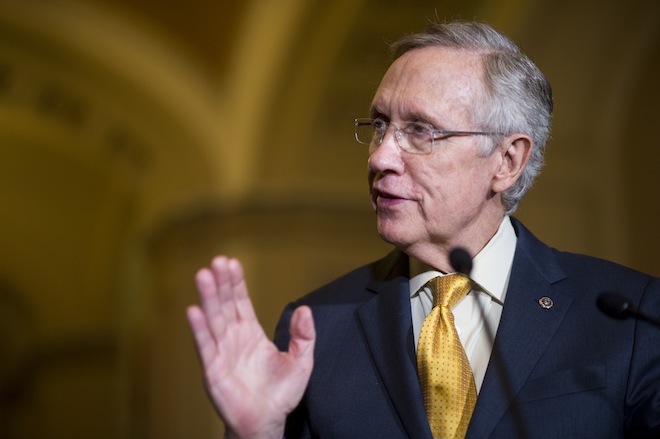Senate Democrats who support reforming the filibuster when the new Congress convenes next month insist their ideas are fairly modest. Their farthest-reaching proposal, they say, would be to end the era of silent obstruction, and force filibustering senators to hold the floor and register their objections publicly, and at indeterminate length. The 60-vote supermajority typically required to end the filibuster, they insist, would still stand.
But would it really?
TPM spoke with a Senate Democratic aide familiar with how the rule would work in practice. In short, if the majority party wins the test of wills, the super majority requirement would be irrelevant.
Currently the minority party can mount “silent” filibusters, so long as the majority can’t muster 60 supportive votes. That means they can block a bill from moving to debate or to a final vote without necessarily occupying the floor and speaking, just like the iconic scene in Mr. Smith Goes To Washington. If even a single member of the minority objects quietly to a simple-majority vote on a piece of legislation or a nominee, the majority must muster 60 votes to end debate.
The Democrats want to alter these incentives by implementing a “talking” filibuster that shifts some of the burden to the filibustering minority. The reforms under consideration would take away obstructing senators’ shortcuts in scuttling a bill, forcing them to occupy the floor and speak ceaselessly until one party or the other loses its will and gives up.
Specifically, here’s what the plan will do: if the minority summons enough votes to block a cloture motion, the Senate would proceed to a period of extended debate. Then, in order to sustain the blockade, at least one of the 41 filibustering senators would be required to hold the floor and speak without any ability to suspend debate.
“The idea is, you can’t ask for a quorum call and we get rid of all the other ways you can delay. So if you want to block a majority vote, you have to be on the floor talking,” said a Senate Democratic aide familiar with the plan. “As soon as someone’s not talking, the majority can ask for a vote to move forward, and that would require 51 votes.”
That would dramatically weaken what is currently an ironclad 60-vote requirement to move to a final vote on legislation without the unanimous consent of the Senate.
“It really puts the onus on the minority when it wants to obstruct and delay,” the Democratic aide said. “They can filibuster as long as they want to be on TV, showing that they’re being obstructers.”
Members of the majority party, it should be noted, would need to be close at hand in order to pass legislation if the minority exhausted itself and ended its talking filibuster.
Senate Minority Leader Mitch McConnell (R-KY) warns that if Democrats succeed in their effort, they’ll live to regret it when they return to the minority.
“There’s growing Democratic unease with breaking the rules to change the rules. I think it would be very difficult for that to come about,” he said Tuesday. “That was appropriately labeled by the other side a few years ago when we were thinking of doing something similar, the ‘nuclear option.’ I think it would be bad for the institution, bad for the country.”






